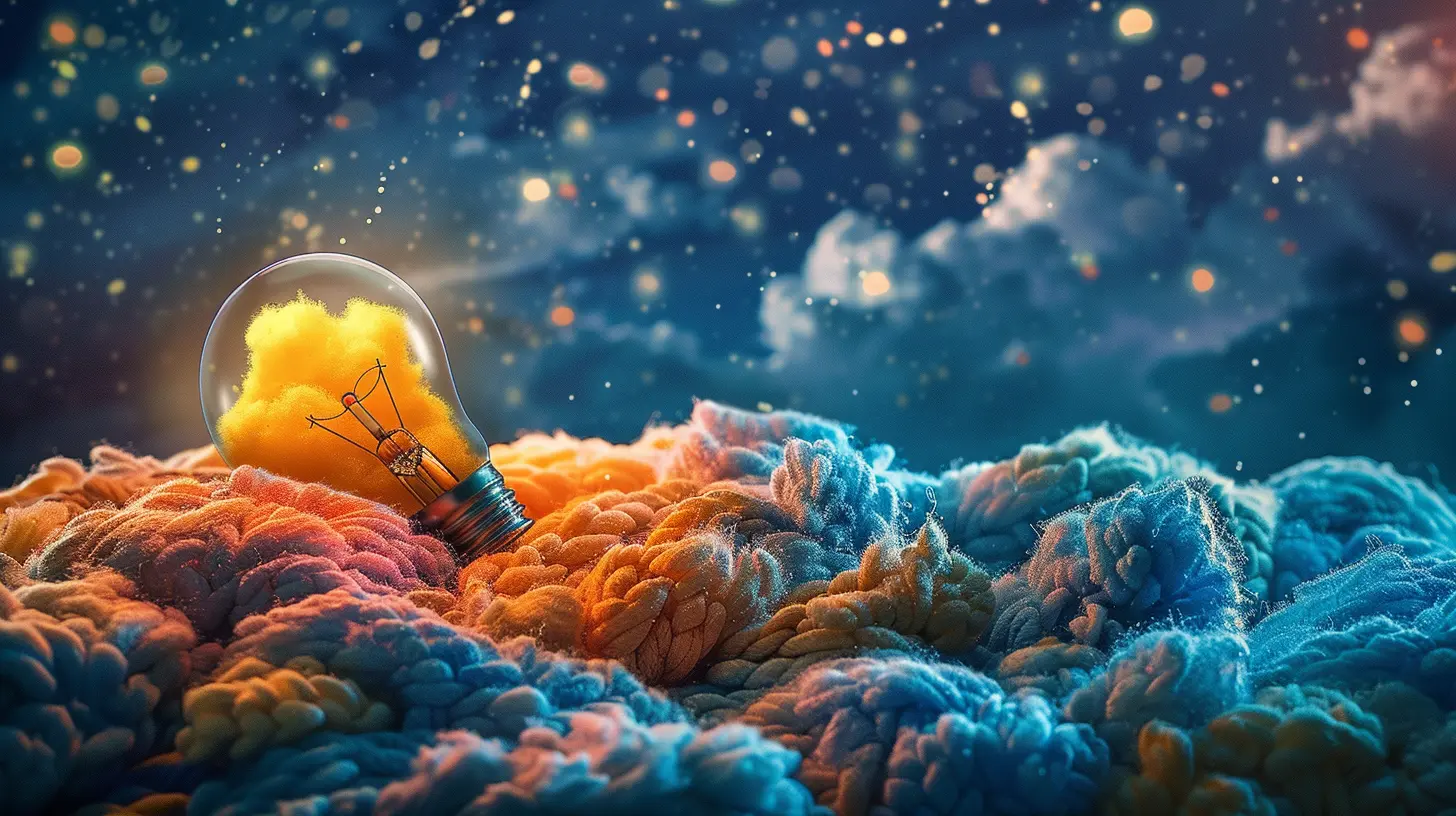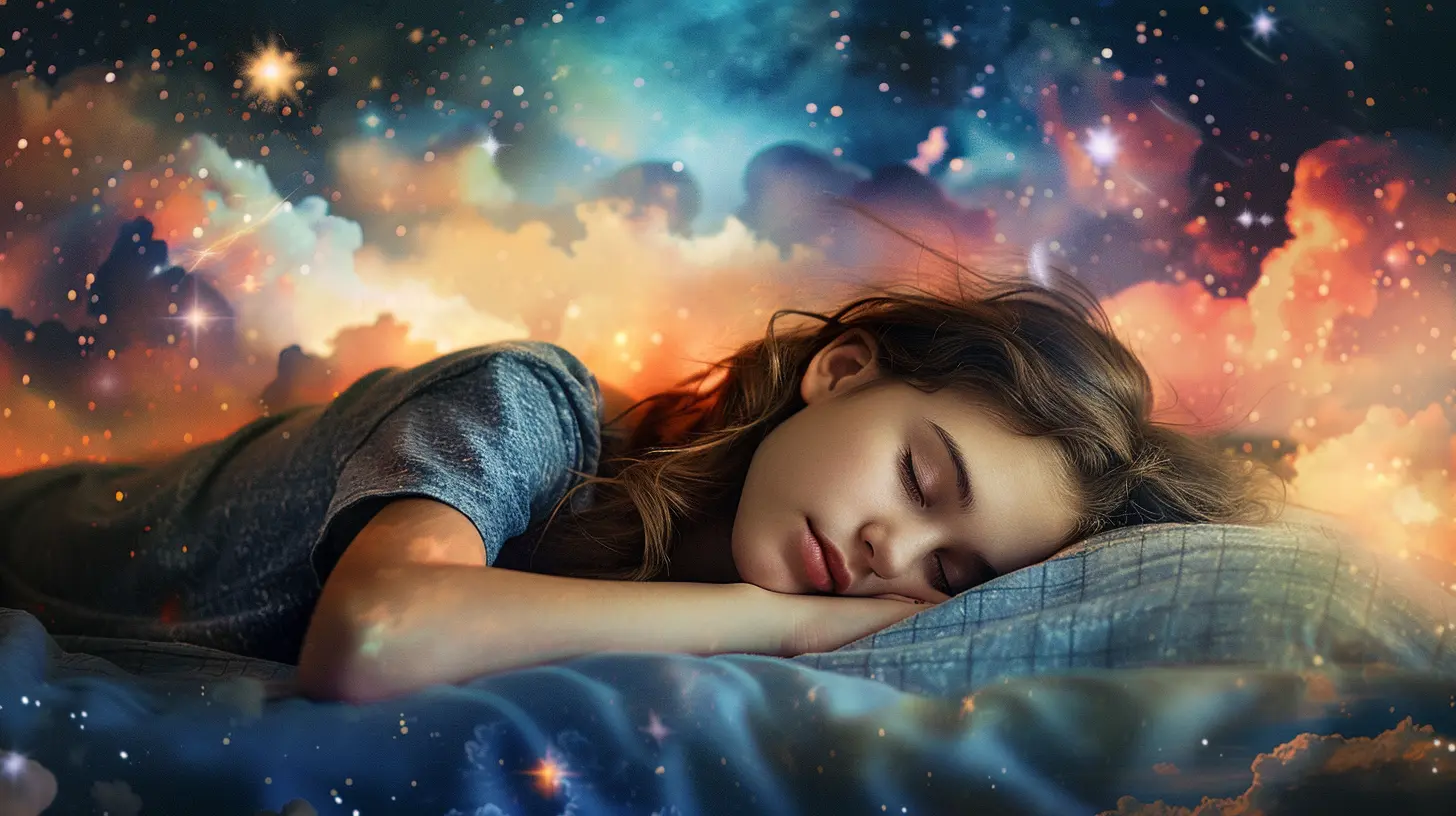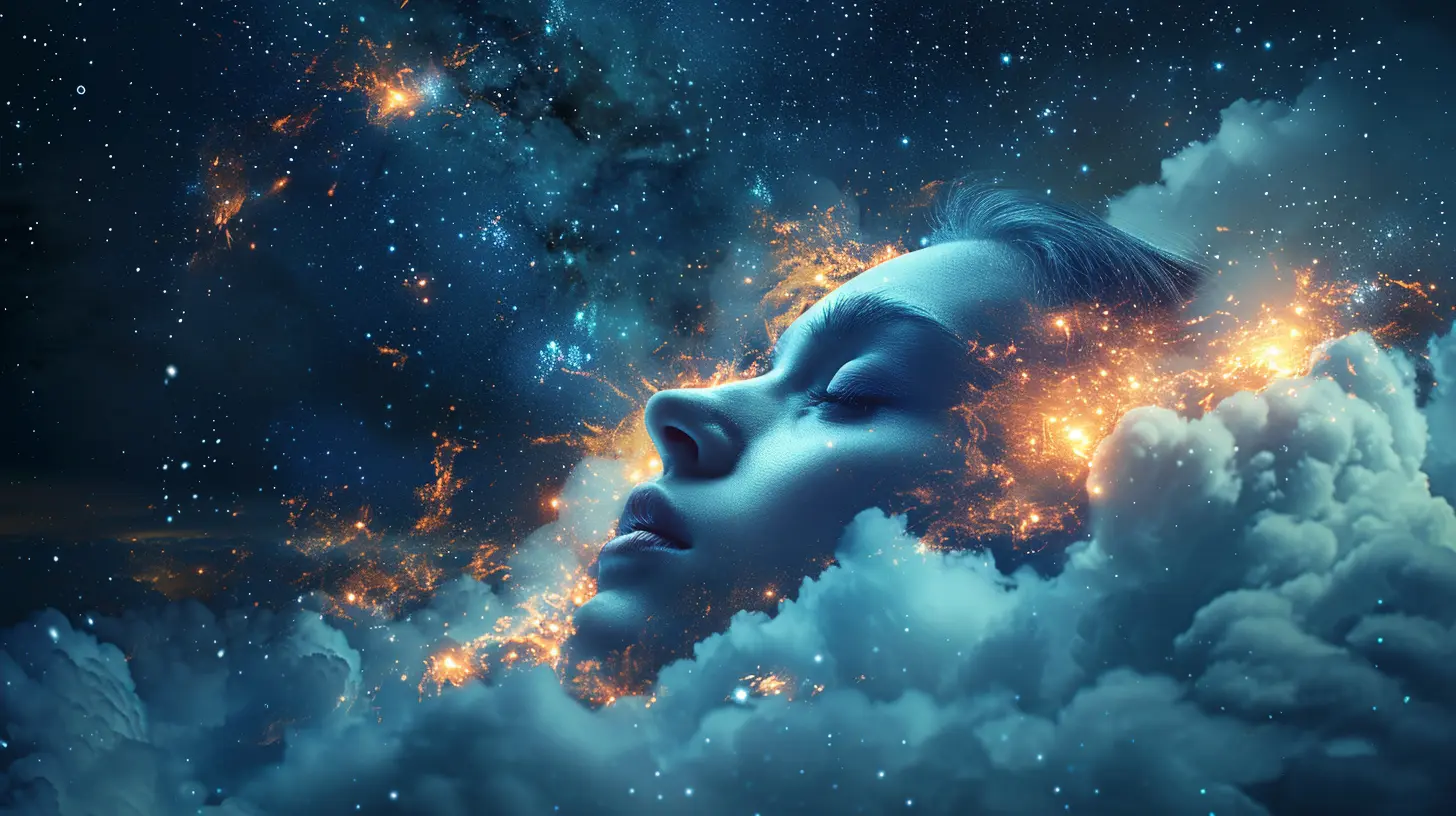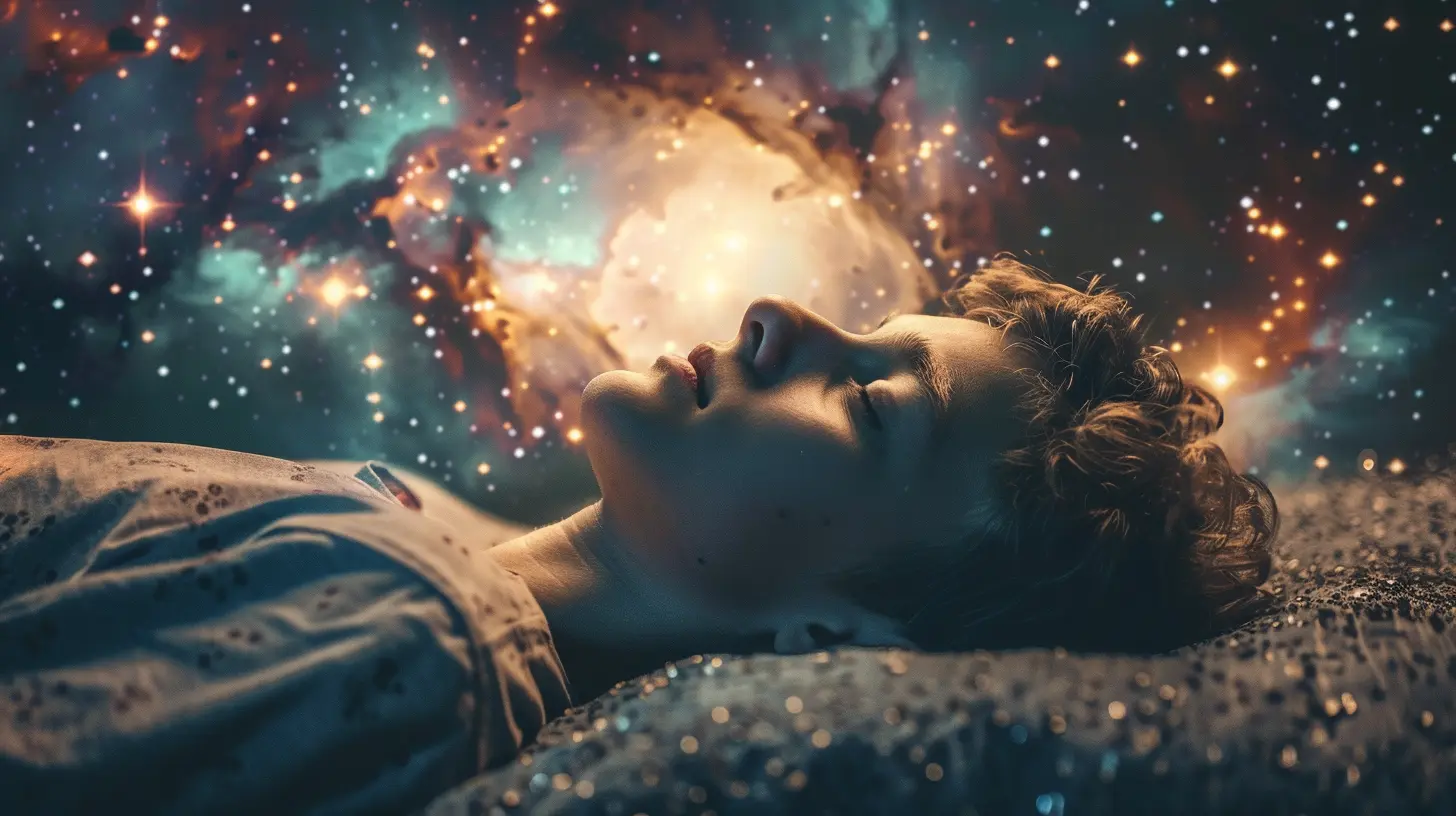The Link Between Sleep and Creativity
29 September 2025
Ever stayed up all night chasing a creative idea, only to feel like your brain’s running on empty the next day? We’ve all been there. Whether you're an artist painting a masterpiece, a student writing an essay, or a business owner brainstorming the next big idea, creativity is like fuel for your work. But here’s the twist—our creativity might just rely more on a good night’s sleep than we think.
In today’s fast-paced world, sleeplessness is often worn like a badge of honor. But if you’re sacrificing sleep for productivity, you might be sabotaging the very thing you're trying to boost: your creative drive.
Let’s dive deep into the fascinating connection between sleep and creativity—because the truth is, your most brilliant ideas could be brewing while you snooze.
Why Sleep Deserves More Credit Than It Gets
First things first—sleep isn't just about rest. It plays a vital role in restoring your body, yes, but it also fine-tunes your brain. While you sleep, your mind doesn’t just turn off. In fact, it becomes incredibly active, organizing memories, consolidating learning, and even solving problems in the background.Think about it like this: your brain is like a phone with dozens of open tabs. Sleep is the overnight reboot that closes the clutter, backs up your data, and installs new updates. Without regular reboots, your system slows down, glitches, or completely crashes.
So what does this mean for creativity? Well, plenty.
The Science Behind Sleep and Creativity
REM Sleep: The Creative Juice Factory
REM (Rapid Eye Movement) sleep is where most of the magic happens. It’s during this sleep phase that your brain becomes highly active, almost as if it’s awake. Dreams occur, emotions are processed, and more intriguingly—creative connections are formed.Neuroscience suggests that during REM sleep, the brain shuffles information from the day and connects distant dots, which can lead to “eureka!” moments when you wake up. It’s like your subconscious is playing matchmaker between random ideas.
Need proof? Studies have shown that people perform better on creative problem-solving tasks after a good bout of REM sleep. In one experiment, participants were more likely to find hidden patterns in problems after a full night’s sleep compared to those who stayed awake.
Non-REM Sleep: The Brain’s Filing System
While REM handles the wild, imaginative side of creativity, non-REM sleep (especially deep sleep) is responsible for sorting and storing factual memories. This phase strengthens neural connections, helping you not only remember things but also understand them better.So that brainstorm session you had at 3 PM? Non-REM sleep will tuck that data away neatly so that REM can remix it later into something fresh and exciting.
How Lack of Sleep Dulls Your Creative Edge
Now for the not-so-fun part. Skimping on sleep doesn’t just make you groggy—it flattens your creativity like a tire with a slow leak.Here’s what happens when you don't get enough rest:
- Reduced focus – You can’t be creative if you can’t concentrate.
- Weaker problem-solving skills – Sleep deprivation messes with your prefrontal cortex, the area responsible for decision-making.
- Decreased flexibility in thinking – You become less likely to think outside the box or entertain alternative ideas.
- Emotional instability – Mood swings and irritability flare up, making collaboration and brainstorming a nightmare.
In short, your mind becomes less playful and more rigid. And a rigid mind doesn’t exactly scream innovation.
Ever Had a Dream Spark a Brilliant Idea?
You’re not alone. Some of the most groundbreaking ideas came from dreams. Don’t believe me? Check this out:- Paul McCartney wrote the melody for “Yesterday” after hearing it in a dream.
- Mary Shelley conceived the idea for Frankenstein in a dream.
- Elias Howe invented the sewing machine based on a dream about cannibals wielding spears with holes in the tips.
These aren’t just coincidences. They’re real-life examples of how dreams can unlock your brain’s hidden potential. So next time you wake up with a strange idea, don’t brush it off—it might be the beginning of your next masterpiece.
Napping: The Creative Reset Button
Not a long sleeper? That’s okay. Even naps can work magic.A 10 to 30-minute nap can sharpen focus, lift your mood, and give your brain a mini tune-up. But if you're aiming to boost creativity, aim for a 90-minute nap. That’s long enough to cycle through both REM and non-REM sleep stages and fire up that idea incubator in your mind.
Think of it as hitting Ctrl+Alt+Del on your tired brain—your internal system gets a chance to refresh, and brilliant ideas can rise to the surface.
Tips to Sleep Smarter and Think Brighter
Want to make sleep your creative superpower? Here are some no-fuss tips to get that mind-boosting rest:1. Stick to a Schedule
Your body loves routine. Go to bed and wake up at the same time every day—even on weekends. This helps regulate your internal clock and improves your sleep quality.2. Limit Screen Time Before Bed
Blue light from phones, laptops, and TVs interferes with melatonin—your body’s natural sleep hormone. Try to disconnect 1 hour before bedtime. Read a book, take a bath, or meditate instead.3. Watch What You Eat and Drink
Avoid heavy meals, caffeine, and alcohol close to bedtime. They can mess with your sleep cycle and leave you feeling more tired the next day.4. Create a Sleep-Friendly Environment
Make your bedroom a sleep sanctuary. Dim the lights, keep it cool, and remove distractions. Invest in a comfy mattress and blackout curtains. Remember—you’re setting the stage for tomorrow’s creativity.5. Journal Before Bed
Got a million thoughts racing through your mind? Try brain-dumping into a journal. Not only does it clear your head, but sometimes, those random thoughts turn into golden ideas by morning.Can You Train Yourself to Be More Creative Through Sleep?
Absolutely. Think of sleep as part of your creative toolkit, not an afterthought. If you treat it like a priority—just like you would with learning a new skill or practicing your craft—your brain starts to work with you, not against you.Want to take it a step further? Try “dream incubation”—yep, it’s real. Before you go to bed, think about a problem you’re trying to solve. Focus on it for a few minutes. You might just wake up with the answer staring you in the face.
Final Thoughts: Sleep—Your Personal Muse
At the end of the day—or rather, night—sleep isn’t stealing time from your creativity. It’s fueling it. It’s the silent partner, the behind-the-scenes genius, the muse you didn’t even know you had.So if you're burning the midnight oil, ask yourself: Is staying up worth dulling your creativity tomorrow?
Give sleep the credit it deserves. Your brain will thank you with fresher ideas, sharper insights, and hey—maybe even your next big breakthrough.
Sleep well, dream big, and create fearlessly.
all images in this post were generated using AI tools
Category:
Sleep HealthAuthor:

Laura Hudson
Discussion
rate this article
1 comments
Oriel Romero
Sleep fuels creativity by enhancing cognitive functions. Prioritizing rest can unlock new ideas and innovative solutions.
October 25, 2025 at 2:55 PM


